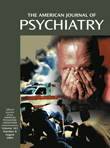Implications of Childhood Trauma for Depressed Women: An Analysis of Pathways From Childhood Sexual Abuse to Deliberate Self-Harm and Revictimization
Abstract
OBJECTIVE: Data from depressed women with and without a history of childhood sexual abuse were used to characterize clinical features that distinguished the two groups and to examine relationships of childhood sexual abuse to lifetime deliberate self-harm and recent interpersonal violence. METHOD: One hundred twenty-five women with depressive disorders were interviewed and completed self-report questionnaires. Path analysis was used to examine relationships of several childhood and personality variables with deliberate self-harm in adulthood and recent interpersonal violence. RESULTS: Women with a childhood sexual abuse history reported more childhood physical abuse, childhood emotional abuse, and parental conflict in the home, compared to women without a childhood sexual abuse history. The two groups were similar in severity of depression, but the women with a childhood sexual abuse history were more likely to have attempted suicide and/or engaged in deliberate self-harm. The women with a history of childhood sexual abuse also became depressed earlier in life, were more likely to have panic disorder, and were more likely to report a recent assault. Path analysis confirmed the contributory role of childhood sexual abuse to deliberate self-harm and the significance of childhood physical abuse for recent interpersonal violence. CONCLUSIONS: Childhood sexual abuse is an important risk factor to identify in women with depression. Depressed women with a childhood sexual abuse history constitute a subgroup of patients who may require tailored interventions to combat both depression recurrence and harmful and self-defeating coping strategies.



